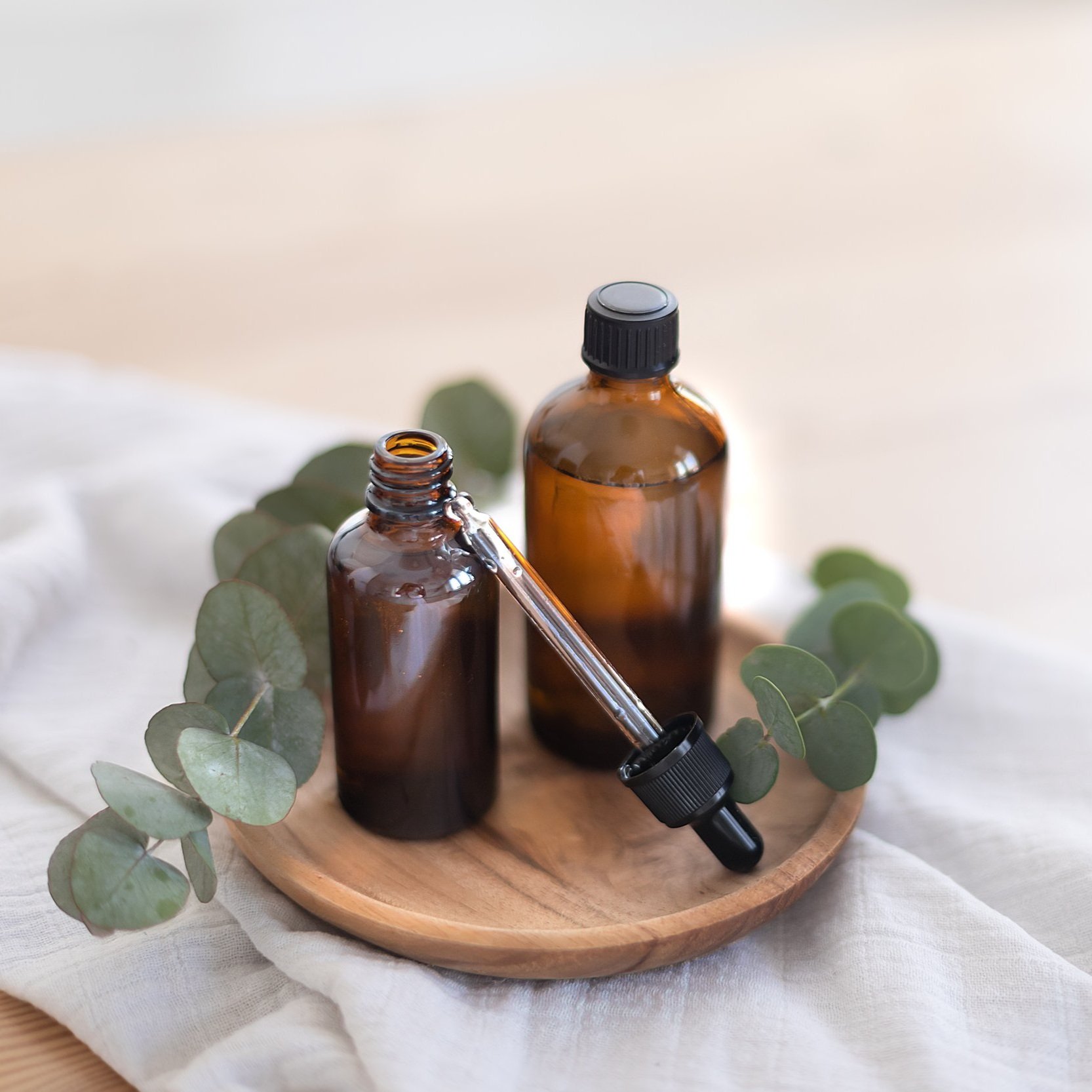Aromatherapy for Personal Balance
Aromatherapy is a modern term for an ancient healing practice that is more than 5000 years-old; there are descriptions of the burning of fragrant herbs, flowers, barks and resins, to enhance healing and meditation, in the Vedic texts. The earliest holistic healers made incense, oils, salves and poultices from a variety of aromatic botanicals.
Aromatherapy makes use of highly concentrated oil extracts from flowers, fruits, herbs, grasses, and trees. These essential oils are the vital life force of plants. When you rub a peppermint leaf between your fingers, the scent that is released is the plant’s aromatic vital essence.
When you smell essential oils, they are carried directly to the area of your brain that influences your emotions, memories, desires, and creativity. Aromas also provoke the production of hormones that control physical and psychological functions. The benefits of aromatic oils can be introduced into your body through your sense of smell or by contact with your skin.
When you apply essential oils to your skin, in addition to the cosmetic benefit, the oil’s tiny molecules enter your pores and make their way into your bloodstream to travel through the body’s entire circulatory system, including your lymph. The vital life energy contained in the oils positively affects all systems of your body.
“The cold, dry, quick and irregular nature of Vata is balanced by using sweet, warming and grounding scents.”
Ayurveda, the ancient holistic health care system of India, explains that there are three dynamic forces in nature, called Doshas, which are constantly changing and therefore affecting your personal balance. Aromatherapy helps to bring balance to your body, mind, and spirit naturally through the aromatic properties of plants, and this is why Ayurveda embraces the use of aromatherapy as a valuable way to balance the three Doshas of Vata, Pitta, and Kapha.
According to Ayurveda, the Doshas control your body’s physical, mental, and emotional systems. Ayurveda also recognizes balance in the relationships of the Doshas in nature, we experience the fluctuations of the Doshas daily; the cooler, dryer morning is Vata; the hot, humid mid-day is Pitta; the wet, rainy late afternoon is Kapha.
Ayurveda recommends aromatherapy in your daily routines by: applying aromatic oils to your skin (abhyanga), inhaling diffused essential oils, burning natural candles and incense, keeping arrangements of fresh fragrant flowers in your home or workplace, and growing aromatic plants and trees in your garden. When you receive a massage, Ayurveda insists that the natural oil your therapist uses be specific to your Dosha and be infused with essential oils that will benefit your Doshic balance.
Here is a list of dosha-specific essential oils and carrier oils:
VATA DOSHA – the elemental force of Air and Ether
The cold, dry, quick, and irregular nature of Vata is balanced by using sweet, warming, and grounding scents.
Essential oils: amber, angelica, anise, basil, bergamot, camphor, cardamom, chamomile, cinnamon, clary sage, coriander, eucalyptus, frankincense, geranium, ginger, jasmine, jatamansi, lavender, lemongrass, myrrh, neroli, patchouli, rose, rosewood, sandalwood, sweet orange, tangerine, thyme, vanilla, vetiver, ylang ylang
Carrier oils: sesame, avocado, and castor
PITTA DOSHA – the elemental force of Fire and Water
The hot, sharp, and intense nature of Pitta is balanced by using cooling, soothing, and calming botanicals.
Essential Oils: birch, brahmi, chamomile, champa, clary sage, coriander, fennel, geranium, jasmine, jatamansi, lavender, lemon balm, lemongrass, lime, mandarin, myrtle, neroli, peppermint, petitgrain, rose, sandalwood, spearmint, tangerine, tea tree, vanilla, wintergreen, yarrow, ylang ylang
Carrier oils: sunflower, coconut, and olive
KAPHA DOSHA – the elemental force of Water and Earth
The cool, heavy, and slow nature of Kapha is balanced by using stimulating, warming, and cleansing aromatics.
Essential oils: angelica, anise, basil, bay, bergamot, birch, camphor, cardamom, cedarwood, cinnamon, clary sage, clove, cypress, eucalyptus, fir, frankincense, geranium, ginger, grapefruit, hyssop, jasmine, juniper, lavender, lemon, lemongrass, lime, marjoram, neroli, myrrh, myrtle, petitgrain, peppermint, rose, rosemary, sage, sweet orange, tea tree, wintergreen, yarrow
Carrier oils: mustard seed, almond, and grape seed
Note: 100% pure essential oils are powerful substances; use sparingly and with caution. Always dilute oils before applying them to your skin. If you are pregnant, please consult your physician before using any essential oils.
Dosha sprays can be purchased individually.
Disclaimer: This article was written for educational purposes only and is based on the tradition of Ayurveda. It is not intended to treat, diagnose, prescribe, or heal any health condition or to replace standard medical treatment or advice.







